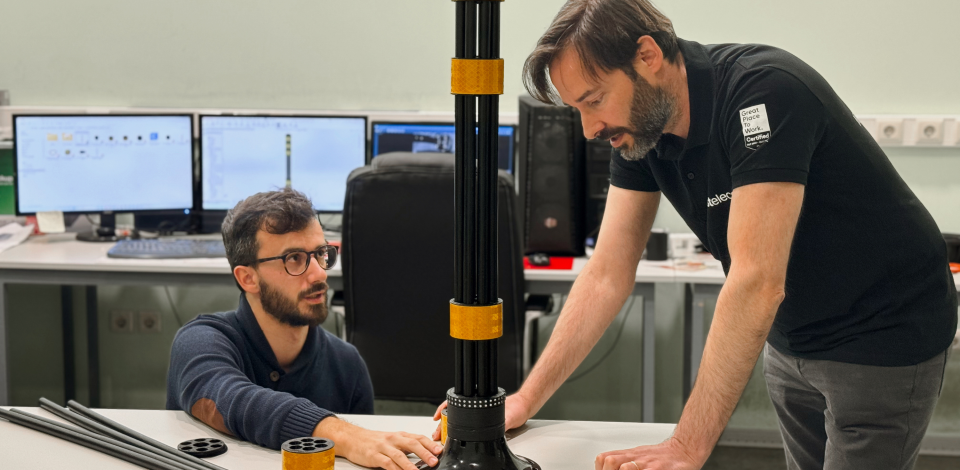
2024-03-12
DSTelecom's ecological beacon enters the world's revolutionary showcase in Amsterdam
The road safety solution, made from fibre optic cable waste, has been nominated for the Intertraffic Awards 2024, the world's leading trade event for mobility professionals, to be held in April in the capital of the Netherlands.
Owner of the "first and largest multi-operator fibre optic network in Europe", a digital highway that passes through more than 145 municipalities in Portugal and has already surpassed 900,000 homes covered, DSTelecom generated 39 tonnes of fibre cable waste last year. What should be done with this difficult-to-decompose material?
"DSTelecom, in partnership with Sernis - a Portuguese company dedicated to developing road safety solutions through innovation - has just announced the launch of SR-ECO-BALI, an environmentally revolutionary traffic marker built from fibre optic cable waste," the telecommunications arm of the Braga group said in a statement on Monday 11 March.
With this solution, which is the result of the Green DSTelecom project - research, development and validation of new solutions for the reuse or recycling of fibre optic cables - the DST company "wants to add an environmentally responsible solution to the market, which will also reduce the waste generated by the operations of companies in the telecommunications sector".
DSTelecom guarantees that the fibre optic cable waste resulting from its activity "can be reused as raw material for SR-ECO-BALI and reduce the use of the original raw material for these beacons by around 42%".
This traffic marker has already been recognised by the prestigious Intertraffic Awards 2024, which nominated Green DSTelecom in the Green Globe Award category, "having been highlighted as a revolutionary solution in the field of sustainability and innovation".
Intertraffic Amsterdam, taking place this year in April in the capital of the Netherlands, is the world's leading trade event for mobility professionals.
"Green DSTelecom is the result of our commitment to promoting sustainability and the circular economy throughout our operation, and SR-ECO-BALI is just the beginning. We want to explore new applications for fibre optic cable waste and create more innovative solutions that can be used throughout the market," promises João Faria, DSTelecom's innovation manager.
Other possible applications for fibre optic waste, thus broadening the impact of the Green DSTelecom project, will be studied by Product Design students from the Polytechnic Institute of Viana do Castelo.
"Collaboration, co-creation and innovation are catalysts for success for the Portuguese economy and above all for environmental impact. Teamwork, bold thinking and resilience are key factors that allow us to convert problems into added-value and environmentally responsible solutions," emphasises João Faria.
"More than 15 per cent of our workforce is involved in innovation projects and we want to continue promoting progress and sustainability, leading the way towards a more sustainable and efficient telecommunications sector," he said.
Faria also mentions POP Geotermia, another company project that aims to significantly reduce energy consumption in telecoms centres, "through a passive air conditioning solution based on geothermal boreholes, but without the need for a heat pump," he explains.
According to DSTelecom's head of innovation, this solution "is currently being tested in one of DSTelecom's network centres, and it is estimated that it will reduce around 80% of the energy used to cool the telecommunications centres, which are spread across the country from north to south, in the municipalities where the company operates".
Source: Jornal de Negócios